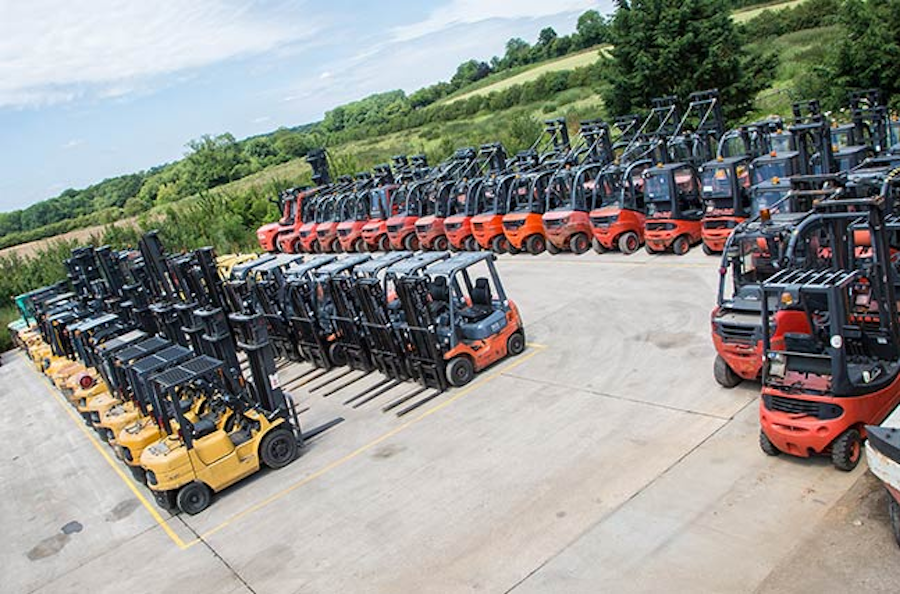News
Forklift Truck Buying Guide

Buying a forklift can be a challenging task. Choosing the wrong machine will clearly limit your productivity and efficiency; at worst, you could be left with a forklift that’s incapable of fulfilling the tasks you expected of it. But get your choice right and you can look forward to many years’ service from your machine, and a huge boost to your productivity. With so many variations of forklift available on the market, there are many things to consider. We highly recommend you use this guide to help you select the best machine for you and the conditions of your workplace.
Here are some of the most common questions a forklift dealer will ask you to find out which machine will suit you best:
1. Do you already know what type of forklift you need?
Whether you need to move heavy loads in a warehouse or construction field, forklifts can safely lift objects humans cannot, making them indispensable on any job site.If the answer to this question is "yes", you can probably find the right machine using our Forklift Finder. If the answer is "no" you probably need to consider the next five questions in this Guide.To better understand the different forklift types and their benefits for certain types of jobs, you can read a couple of our posts which may help you to decide:
What Forklift Truck Do I NeedUnderstanding Different Forklift Types
2. Do you have a preference for Diesel, Gas or Electric powered machines?
The answer to this question most likely depends on whether you want to move materials indoors, outdoors or both. For example, a diesel forklift cannot be used indoors as the emissions are dangerous to health, so gas or electric powered will be a better choice. Another important question is how many hours (roughly) per week your forklift will be used. Calculating the costs associated with the forklift will help you decide which type will allow the largest savings, with the least impact on the environment.
Read a short article that explain the pros and cons of each power option for forklift trucks.
3. Do you need your forklift to operate in small or narrow spaces?
The answer to this question will help you get closer to the exact type of forklift that will suit you best. Articulated forklifts and side loaders are the best for narrow spaces, while reach trucks are perfect for use in high-shelf racking systems. Another option is Very Narrow Aisle Trucks (VNA), also known as turret trucks, which can move quickly through small spaces, lifting pallets and other loads with incredible precision. They are designed to work inside warehouses that have a small amount of space and lots of stock.
.However, if you need a forklift to lift wide loads (over 3 meters wide) the side loader or counterbalanced forklift will be a better choice.
4. What type of the surface is in the place where the forklift will be used?
This question relates mainly to the type of tire you require for your forklift. Some warehouses require specific types of tires based on the location or nature of the materials being moved. In other situations, if you use your forklift outdoors, it has to have off-road tires suitable for uneven terrain and all weather conditions.
Read more about forklift tires here
.For extreme and unstable conditions, you may also consider Rough Terrain forklifts, which are designed specifically to operate in the harshest working conditions.
Read more about Rough Terrain Forklift Trucks here
:
5. Do you need your forklift to lift mainly pallets? If not, what else will you be lifting?
Pallet trucks are perfect for warehouse conditions where the task is simply to move pallets. Again, you have several options to choose from including manual vs electric and platform (standing) versus seated machines.
See all our pallet trucks here
.If you need to move anything other than pallets, think about the range of weight and dimensions of the loads the forklift will handle, as well as the maximum height you require the forklift to reach. This will allow you to determine the load capacity and lifting height requirements for your forklift truck. You can use our
to specify the exact capacity and lift height you need.
6. Does your forklift work fine with the standard forks, or you need different attachments too?
Knowing the specification and the range of materials you’ll be handling, you can also decide if you need additional attachments. For example, if you sell paper rolls you should consider using clamps that will wrap the bales securely and make it easier to transport them from the production line to a truck dealing with transport.You can
read more about the forklift attachments here.
We hope the information above is useful. However, if you have any doubts regarding the type of forklift you need, please
contact our friendly, knowledgeable team
.
Subscribe
Keep up to date with PHL and all things forklift machinery.